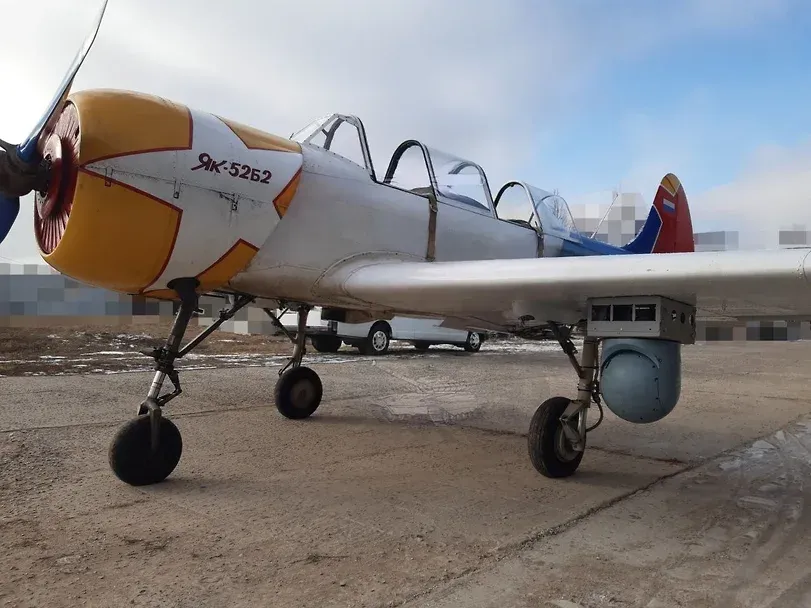0645GMT/Rouble hits 2-year high; Thailand extradition deal

ROUBLE STRENGTH: The Russian rouble strengthened past 80/$1 for the first time in nearly two years on Wednesday, reflecting confidence that a peace deal will be struck in Ukraine and the US will then integrate Russia back into the international economy. (COMMENT: It's been a remarkable rebound for the rouble which had dropped to 114/$1 in November, a return to strength that not only reflects the Kremlin's far stronger position from six months ago but also the tight monetary policy that the Central Bank has maintained. It jacked its interest rates up to 21% in November to support the rouble.)
PRICE RISES: The Borscht inflation index shows the price of staple food products in Russia soaring in the past year – which means that the iconic soup is far more expensive to cook. (NOTE: Borscht is a soup made predominantly from beetroot but also other vegetables. Some chefs add a sliver of beef but that's more of a frisson than a necessity. It is ubiquitous throughout Russia.) (COMMENT: This is an important index for analysing the real trajectory of inflation in Russia. Price rises are uneven but clear. According to the data, potatoes are now 166% more expensive than a year ago, onions are 81% more expensive and cabbage is 56% more expensive. The saving grace for Russia's borscht fans is that beetroot has only increased in price by 12% and beef, for that added bit of luxury, by 15%. Famers have blamed high labour costs, linked to the Kremlin's war in Ukraine, and a poor harvest.)
CONSUMER DEMAND SLIPS: Demand for industrial products from Russian manufacturers has fallen to a five-year low, said the Russian Academy of Sciences' Institute for Economic Forecasting. It said that only 45% of respondents to its survey said that their "estimated sales volumes were normal". (COMMENT: Although the survey is opaque this is a rather remarkable omission from a unit that is now close to the Kremlin. Putin officially became the titular president of the Russian Academy of Sciences this month and now here it is with a gloomy economic outlook. This assessment also, importantly, fits in with the general economic trend that The Memo has been charting. Collapsing demand is denting Russia's non-war economy heavily.)
PUTIN IN KURSK: Media coverage of Vladimir Putin's trip to Kursk on Tuesday showed that he was accompanied by Sergei Kiriyenko, deputy head of the Presidential Administration. (COMMENT: Kiriyenko has become Putin's 'Mr Fix it'. He tends to turn when Putin needs sensitive and tough jobs dealing with such as integrating captured regions of Ukraine into Russia and re-establishing air links with the Georgian breakaway region of Abkhazia. Kiriyenko is considered on the shortlist of potential successors to Putin -- although this is a long and thorny issue.)
There was one particularly poignant moment during Putin's carefully stage-managed trip to Kursk which involved him sitting around a table chatting to "volunteers" and then touring a nuclear power station. At one point a local official said that Russia needed more land and that "Sumy should be ours". Putin smiled and replied that he had appointed Alexander Khinshtein as Kursk's governor because "he also wants more of everything". (NOTE: Sumy is the Ukrainian region just south of Kursk.) (COMMENT: Putin often uses these planted interplays with members of the public or junior officials to allow Russian TV to capture a message that he wants to send or to portray him in a certain light. The important issue here is that he didn't disagree with the local official's lust for more land for Russia. Not a good sign for the peace talks.)
THAILAND EXTRADITION DEAL: Russia's lower house of parliament on Wednesday ratified extradition deals with Thailand and the Seychelles. This still needs to be signed off by Russia's Senate and then signed into law by Putin, but these are pro-forma issues. (COMMENT: Thailand in particular had become a popular destination for young anti-Putin Russians fleeing Russia after the start of the war in Ukraine because they didn't need a visa to enter, it was cheap and they enjoyed the distracting holiday vibe. By signing this extradition deal, the Kremlin is signalling that it may be prepared to go after them. It also, once again, shows, that outside Europe much of the world is prepared to work with Russia.)
ARMENIA-RUSSIA RELATIONS: Sergei Lavrov, Russia's foreign minister, insisted at a press conference with his Armenian counterpart in Yerevan that Russia and Armenia were "strong allies" despite Armenia's shift towards the EU and the West. (COMMENT: Yes and no. Both Russia and Armenia are going out of their way to look like friends, even though bureaucrats in Yerevan are working on divorcing Russia. Armenian PM Nikol Pashinyan attended Russia's military parade in Red Square earlier this month and has ordered his officials to "promote relations" with Russia. But Armenia has also started its EU accession process which the Kremlin has pledged to stop with an "influence campaign". These disagreements were also on display yesterday with Lavrov and Ararat Mirzoyan, Armenia’s foreign minister, disagreeing over whether the Russia-led CSTO security group had let Armenia down in the face of Azerbaijani aggression in 2020-2023.)
ASSASSINATION: Assassins killed in Spain short dead Andrii Portnov, a pro-Russia former senior adviser to Viktor Yanukovych. (NOTE: Yanukovych was the Kremlin's former stooge president in Ukraine until he was run out of office by street demonstrations in 2014.) (COMMENT: It's unclear at this stage who ordered the assassination but Russian media has been quick to blame Ukraine.)
